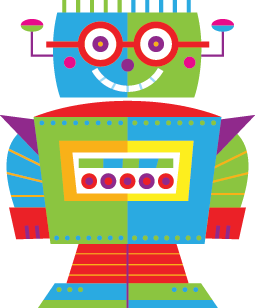The human touch
Tags: robo advice, financial adviser

Unless you’ve been living under a rock, you’ve probably heard about the latest trend in financial advice recently: robo-advice. But what does it mean?
You won’t be sitting down to talk money with a cute little humanoid robot anytime soon, but despite the lack of actual robots, “robo-advice” is a growing element of the financial planning sector. Perhaps more accurately called computer-generated advice, robo-advice entails logging into a website and answering a number of questions about your financial situation, your goals and your attitude to risk. A computer algorithm then generates a statement of advice (SOA) setting out recommendations. And once your money is invested, some robo-advice programs can monitor your portfolio and automatically make adjustments if necessary.
So, is time up for financial advisers of the flesh and blood variety? Well in our view? No, not for quite a while yet.
What are robo-advisers good at?
Computers are really good at crunching numbers, looking for patterns in big sets of data, undertaking repetitive actions according to pre-defined rules, and not letting emotions drive decisions. Some of the tasks these programs can do well include:
- Calculating how much you need to save for retirement.
- Helping to label your tolerance of risk.
- Recommending investment portfolios.
- Re-balancing and otherwise maintaining investment portfolios.
In fact, these are tasks that many of we human advisers already delegate to computers, freeing up time for us to focus on other things we do well.
The human touch
Despite some impressive gains in artificial intelligence, human advisers win hands down when it comes to:
- Having empathy.
- Truly understanding your goals and appreciating that they aren’t just about money.
- Recognising that there is a place for emotion in the financial planning process and crafting recommendations that cater to non-financial needs.
- Constructing complex strategies for clients who don’t neatly match one of the categories programmed into algorithms.
Each has a place
A robo-adviser might be quite capable of helping you decide which of the ten different investment options offered by your public superannuation fund is most appropriate for you; or even designing a portfolio for your self-managed superannuation fund (SMSF).
However, as they are today, robo-advisers aren’t up to figuring out whether your life insurance should be owned by you, your business or through your SMSF. They don’t know what the best way is to provide for the needs of a disabled child, or how to create strategies that integrate your super fund, family trust and other financial structures.
Many Australians are reluctant or unable to pay for traditional financial advice, and robo-advice has great potential to provide them with useful, low-cost information. Even so, when taking this option it’s important to understand the fees charged by a particular service, how they are paid and exactly what will be delivered.
But when the level of advice required deviates in any way from the still quite limited capabilities of a computer, there is simply no substitute for an adviser with a human brain and a beating heart.
Technology is improving at a breathtaking pace and improvements in machine learning may find their way onto the front line of financial planning. Perhaps one day we will sit down to chat with cute little mechanical advisers. However artificial intelligence has a patchy track record in delivering on its promise, and there’s a fair chance that anything approaching a comprehensive financial plan will continue to rely on the human touch for quite some time yet.
If you're looking for a human touch to plan your retirement, get in contact with us.






